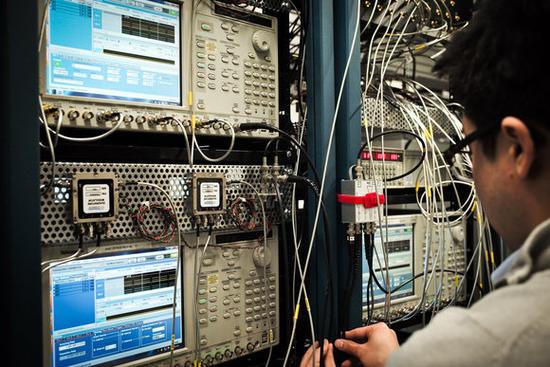Netease Technology News March 7th, according to computer computer world magazine reports, in many movies and television shows, the role of the name Q is very mysterious and powerful. For example, in the "007" series, Dr. Q provided James Bond with many tools for the future. In Star Trek, the Q people are more like creating Protoss civilization. Today, IBM also launched a quantum computing project called Q. In the next few years, IBM plans to build a quantum computer with more than 50 qubits, and traditional computers will be turned into garbage. IBM's Q will provide users with paid quantum consulting and services. It is much like IBM's supercomputer Watson, but the latter uses a traditional computer while Q uses a quantum computer. The 50-qubit quantum computer will be 10 times larger than IBM's already-existed 5-qubit computer and will be able to perform tasks that many traditional computers cannot. IBM said that the new quantum computer will accelerate drug discovery and scientific discovery. Quantum computers are completely different from traditional computers and will eventually replace today's personal computers and servers. They provide new ways to advance calculations. Just as today's classic computers reach their limits, making smaller chips becomes more challenging. IBM is developing faster quantum computers to prove that such systems are not theoretical dreams. IBM's ultimate goal is to create thousands of qubits for general-purpose quantum computers to perform a variety of computing tasks. Scott Crowder, chief technology officer and vice president of the IBM Quantum Computer Program, said that the 50-qubit quantum computer is enough to help develop algorithms and begin to solve some practical problems. Faster computers will also help discover new uses of quantum computers, which may have never been explored before. Quantum computers are good at solving problems in the areas of drug discovery, molecular structure, etc. They can consider problems from different perspectives, including those that are less obvious but need to be calculated. In today's computers and servers, it is difficult to deal with drug discovery, molecular composition analysis and other issues because of their lack of computing power. Today's computers are better at handling big data sets and using them to find answers. Jerry Chow, head of IBM's experimental quantum computing team, said that for IBM, it seems premature to introduce commercial quantum computing services. After all, it is still in the research and development stage. However, since the introduction of 5-qubit quantum computers in May 2016, the response has been extremely alarming. The service already has 40,000 users, conducted 200,000 experiments, and published 15 research papers. Smaller quantum computers paved the way for program expansion and the introduction of IBM's Q, and larger quantum computers are being built by IBM. It requires special cabinets and cooling mechanisms. IBM will work with early partners to help develop application use cases and science to stabilize the development of quantum computers. IBM's current 5-qubit quantum computer is participating in a project called Quantum Experience that provides free services through the public cloud. There are huge challenges in manufacturing quantum computers, partly because such systems are very unstable. Today's computer storage is organized in the form of 1 or 0, and qubits can implement multiple states, such as holding 1 and 0 at the same time. This technique is called overlay and gives quantum computers more processing power. But qubits can be very fragile and even subject to electromagnetic radiation can collapse because it can disrupt the computational cycle. Quantum computers need stability and can be used to help sort the genome. IBM researchers are working to solve problems related to processing qubits, and quantum computers will prove that these efforts have been successful. The development of quantum computers focused on 50 qubits can bring greater stability, including connection, strobe, and error correction among qubits. In addition to IBM, Intel and Microsoft are also developing quantum computers, but they are based on particles that exist only in theory. D-Wave provided a $15 million, 2000 qubit quantum anneal computer 2000Q, which will eventually provide services through the cloud. IBM is also developing new computers based on the human brain structure, such as its experimental TrueNorth processor. The NS16e has been studied for a long time and may eventually be provided through a special program. These computers can perform more tasks such as machine learning. IBM will also provide software development kits and application programming interfaces so that code written using popular programming interfaces can be imported into quantum computers. (small) Polycrystalline Solar Panel,290W Poly Solar Panel,Portable Polycrystalline Solar Panel,Polycrystalline Solar Module Panel Jiangsu Stark New Energy Co.,Ltd , https://www.stark-newenergy.com